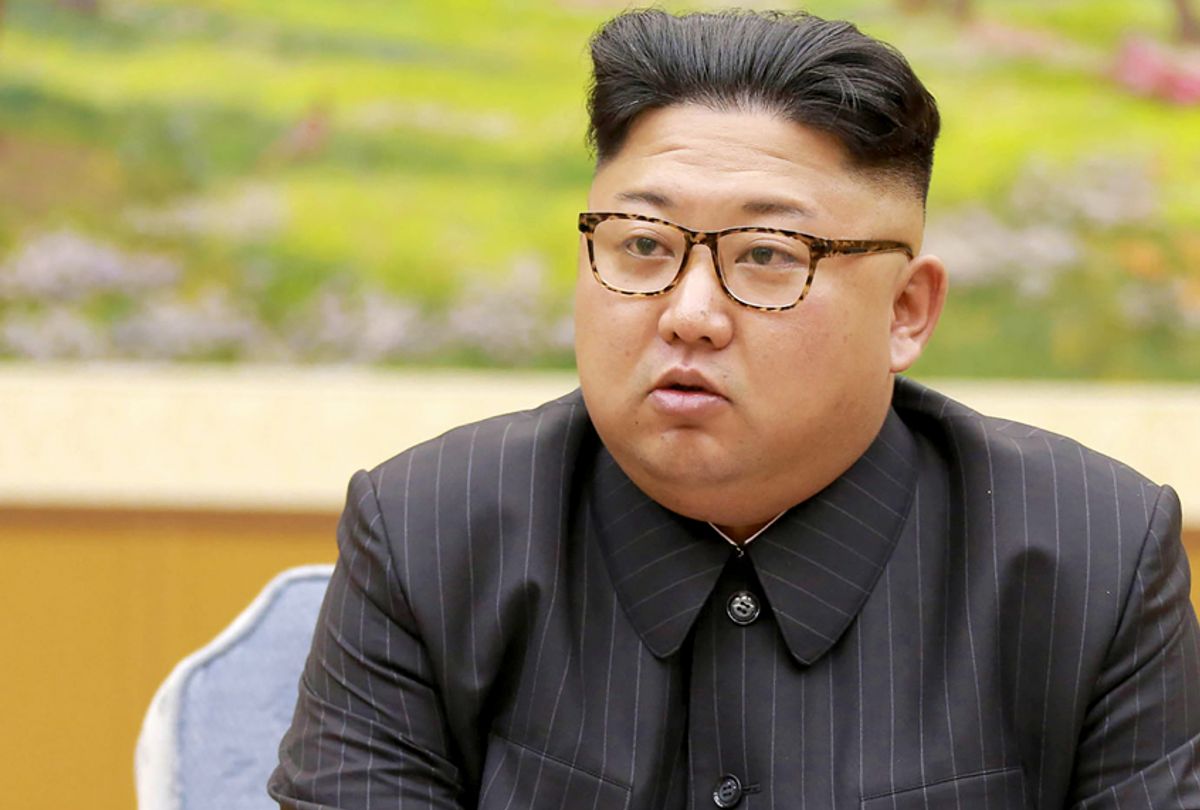After discussions between Vice President Mike Pence and South Korean President Moon Jae-in last week at the Winter Olympics, the United States' position towards North Korea has shifted, sort of.
In an interview on his return trip from Pyeongchang, Pence explained that during "two substantive conversations" with the South Korean president, the two agreed to further engagement with North Korea, The Washington Post reported. South Korea would lead the way, and the U.S. would soon follow, pending any progress.
The Post elaborated:
The frame for the still-nascent diplomatic path forward is this: The United States and its allies will not stop imposing steep and escalating costs on the Kim Jong Un regime until it takes clear steps toward denuclearization. But the Trump administration is now willing to sit down and talk with the regime while that pressure campaign is ongoing.
Pence called it “maximum pressure and engagement at the same time.” That’s an important change from the previous U.S. position, which was to build maximum pressure until Pyongyang made real concessions and only then to engage directly with the regime. . . .
Moon assured Pence he would tell the North Koreans clearly that they would not get economic or diplomatic benefits for just talking — only for taking concrete steps toward denuclearization. Based on that assurance, Pence felt confident he could endorse post-Olympic engagement with Pyongyang.
The slight change in direction is enough to indicate that the Trump administration's strategy of provoking North Korea may not have worked. The president has been adamant about not considering any economic sanction relief until the Kim Jong-un regime begins to take steps to denuclearize. But if the Olympics proved anything, it just might be that the so-called "charm offensive" of Kim's younger sister, Kim Yo-jong seemed to work.
"North Korea clearly appears to be winning the gold," Kim Sung-han, who served as South Korea’s vice foreign minister in 2012-2013, told Reuters. "Its delegation and athletes are getting all the spotlight, and Kim Jong Un’s sister is showing elegant smiles before the South Korean public and the world. Even for a moment, it appears to be a normal state."
Much of the media gave some surprisingly fawning coverage of Kim's sister, and the North Korean delegation, at the Olympics. But Pence refused to show any positive support, with his stone-cold demeanor and unwillingness to even stand for North Korean athletes during the opening ceremonies. But one can properly condemn both the North Korean regime and at the same time remain opposed to the Trump administration's tough-talk and hardball tactics that haven't produced much of a positive result.
Over the past year, tensions have escalated quite dramatically between the U.S. and North Korea, primarily as a result of repeated joint military exercises by the U.S. and the South on one side, and Kim's military parades and ballistic missile testing on the other. The exchanging of insults between Trump and Kim only made things worse.
The White House's endorsement of South Korea proceeding with talks with North Korea, without the need for preconditions, is certainly a small step in the right direction. Though, that could change on a dime, but it could prove to be an option worth exploring.

Shares